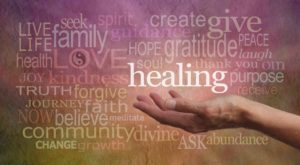The Emergence of the Reconciled Self
The Reconciled Self often emerges from the Desolate Self. In my case, following Karl’s death, desolation feels like this: hopelessness, despair, no home, no future, no work, no Beloved, no joy, no fun, no hope or generativity, no soul, no nourishment, no identity, no anchor…. In the days and weeks after Karl’s death, my life is empty, without comfort or consolation. It feels despairing and barren. I am in a state of diminishment when I am yearning for a state of growth.
In my desolation, I must be careful not to turn in on myself, spiraling into negative feelings, as I risk feeling drained of energy and giving up on things that used to be significant. In that early time, I am convinced that nothing will ever grow inside me again. I have to reconcile so many losses. I must not focus primarily on what I have lost. I have found a great deal and I must celebrate that reality.

I have to accept, as Alan Wolfelt explains, that my mourning journey will never end. I am not likely to “get over” my grief. A “return to normalcy” after the death of a loved one is not possible. The experience of grief changes us forever.
Reconciliation is likely to emerge, Wolfelt counsels, “much in the way grass grows.”

Reconciliation was the core work
Reconciliation is the core work I need to do at this time. I need to reconcile all of the broken and separated parts of my psyche. To have a new life, by following an unfamiliar path, I must reconcile myself to the realities of the life I am living: accept it, give it up, and move on from it. If I want a life that is fertile, nourishing, and joyful, I need to work on that. Above all, I need to clear my life of any accumulated debris. I must reconcile fully with Karl, following our shared work on forgiveness (described in Chapter 9).
Reconciliation is an ongoing process
Reconciliation is a continuing process with many stages, and we may move back and forth between them as we navigate toward true reconciliation with ourselves and others.

I explore our healing model in detail in the following four chapters: Acceptance (Chapter 7), Gratitude (Chapter 8), Forgiveness (Chapter 9), and Engagement (Chapter 10). Each overflows with our conversations, reflections, and meaning-making. We can imagine these chapters as Gateways of Wisdom on our path, which we can pass through more or less in order, allowing each new insight and experience to build on the previous one.
As we reach a new Gateway, we might regard it as a sort of destination or even a refuge.
